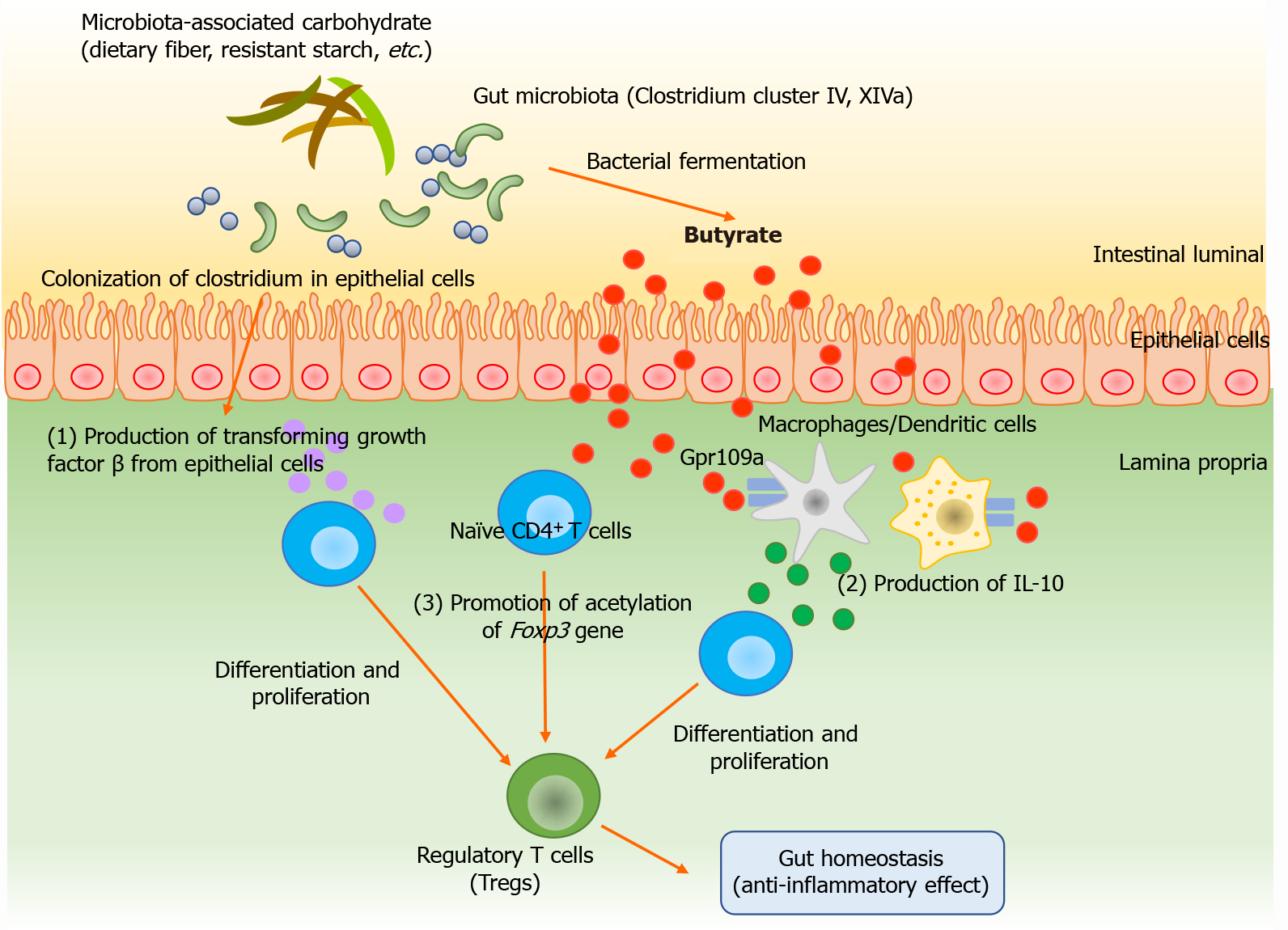Copyright
©The Author(s) 2021.
World J Gastroenterol. Jun 21, 2021; 27(23): 3317-3326
Published online Jun 21, 2021. doi: 10.3748/wjg.v27.i23.3317
Published online Jun 21, 2021. doi: 10.3748/wjg.v27.i23.3317
Figure 1 Function of butyrate in intestinal mucosa.
Butyrate contributes to the maintenance of gut homeostasis by multiple mechanisms. Butyrate is mainly produced in the intestinal tract by bacteria of the Firmicutes phylum during fermentation of dietary fibers under anaerobic conditions. Butyrate is the main energy source for the intestinal epithelial cells. (1) The genus Clostridium promotes the differentiation and proliferation of regulatory T cells by enhancing the production of transforming growth factor β from intestinal epithelial cells; (2) Butyrate enhances the production of the anti-inflammatory cytokine, interleukin-10, produced by macrophages and dendritic cells through GPR109a, which is the G protein-coupled receptor for butyrate; and (3) Butyrate upregulates histone H3 acetylation at regulatory regions of the Foxp3 gene and promotes the differentiation of naïve CD4+ T cells into regulatory T cells. IL: Interleukin.
- Citation: Nishida A, Nishino K, Sakai K, Owaki Y, Noda Y, Imaeda H. Can control of gut microbiota be a future therapeutic option for inflammatory bowel disease? World J Gastroenterol 2021; 27(23): 3317-3326
- URL: https://www.wjgnet.com/1007-9327/full/v27/i23/3317.htm
- DOI: https://dx.doi.org/10.3748/wjg.v27.i23.3317









